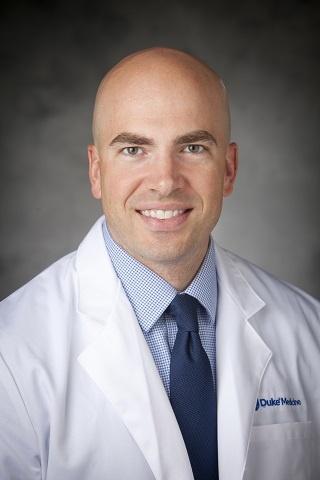When I was a medical student, a speaker came to talk to my class about the Affordable Care Act. He conducted an informal poll, asking how many of us planned to work in a hospital or large health care system when we were done with our training. Most of the hands went up around the room. Then he asked how many of us were interested in running our own practice someday. Mine was the only hand in the room that shot up. What a difference that was, he said, from even 10 to 15 years ago, a time when doctors tended to be more entrepreneurial. It would seem that now the only future most medical trainees envision for themselves is in hospital medicine.
I am now a first-year resident at Duke Family Medicine and I could not be more excited to be here. I was drawn to Duke because of its focus on community engagement and leadership training. But I also appreciate the fact that our program is filled with people who are not afraid to think differently. That’s what you get when you’re interested in primary care at a specialist-heavy hospital like Duke. The challenges facing our health care system require some radical thinking.
Back to my idea about working in private practice. … Don’t get me wrong, I know there are many issues with that type of model. It’s getting more and more difficult to make a living away from big systems. Private and government insurers are scaling back reimbursement and adding increasingly more oversight to their regulation which translates into mountains of ulcer-inducing paperwork. Well-meaning doctors are being forced to cram more patient appointments into their days, narrowing the time they get to spend with their patients.
Ever feel like you spend more time in the waiting room than with your doctor? This is a lose-lose situation; patients don’t like these quick visits and neither do doctors. Primary care doctors in particular value their relationships with patients. That’s just one of the ways we like to think differently. But I think we’d all agree it’s difficult to have a relationship with someone you only see for seven minutes once or twice a year.
There is a better way. This may sound radical but, if anything, it harkens back to how medicine used to be practiced. It’s called Direct Primary Care and it cuts out the middle-man insurance system that is tearing medicine (and our economy) apart. It works like this: a patient, either with insurance or without, partners directly with a Direct Primary Care doctor. Sometimes they pay them a low monthly fee, which could fall anywhere in the range of $30/month to $75/month, or sometimes they only pay as needed like an urgent care. In exchange they get a remarkably different health care experience: extended comprehensive appointments, yearly physicals, any lab work they might need and sometimes all of their prescriptions or imaging. No haggling with insurance companies or questions about costs. Depending on the deal, they might even get house calls, their doctor’s cell phone number and can almost always have same-day appointments. This is real deal primary care.
How is this possible? Here’s a dirty little secret. It actually does not cost ridiculous amounts of money to get high-quality primary care. It only seems like it does with our current system because the insurance system insulates patients and providers from actual costs. When you cut out that middle man from health care, and pay lab and imaging companies cash instead of asking them to wait on insurance reimbursement, those exact same services can cost, literally, pennies on the dollars. The exact same care, for almost nothing. You don’t use your car insurance when get your oil changed; why do we use our health insurance for routine health care?
That is going to sound very radical to many people but I’ve seen it work firsthand. One of the pioneers of this model nationally is located right here in Apex — a practice run by Dr. Brian Forrest. The beauty of this model is that it works for anybody — folks with insurance, folks without insurance, Medicaid, Medicare. And I’m convinced Direct Primary Care could save our health care system by exposing and driving down costs, while strengthening the doctor-patient relationship that is at the core of primary care.
Brian Blank is a first-year resident with the Duke Family Medicine Residency Program. Email brian.blank@duke.edu with questions.
Editor’s note: Duke Family Medicine residents guest blog every month.
